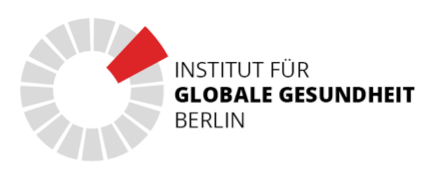IGGB Insights | Monthly Round-Up | November 2025
Global Health • Policy • Systems • Governance
A Personal Note from Seattle
Greetings from Seattle, where I am spending part of this month meeting with partners and global health colleagues. From the Space Needle to the Black Hole Sun sculpture in Volunteer Park, this city remains one of the world’s most active hubs for global health innovation — home to influential funders, biotech companies, implementation partners, and policy actors shaping the next chapter of global health governance. A fitting backdrop for this edition’s focus on a sector undergoing rapid transformation.
1. A Turning Point: Global Health Funding Drops Sharply
International aid for AIDS, TB and malaria is projected to fall by 30–40%, triggering urgent calls for countries to accelerate domestic financing and self-reliance.
- This comes as demand increases, conflicts intensify, and health systems remain under strain.
- The risk of backsliding on decades of progress is now real.
International aid to fight AIDS, tuberculosis, and malaria is declining (Le Monde)
Why this matters:
The global health community must rethink how to sustain disease responses while building resilient PHC and social protection systems, even as external resources flatten.
2. The Global Fund’s Call for Systemic Reform
In a major November commentary, the Global Fund argued that global health architecture is too fragmented, duplicative and inefficient to meet today’s challenges — and must be transformed.
Transforming Global Health to Maximize Impact and Accelerate Self-Reliance (GFATM)
Key take-aways:
- Expect future consolidation or restructuring of agencies.
- Country ownership must increase — but equitably.
- Efficiency will be a major theme in 2026.
3. U.S. Global Health Policy Shifts to Bilateralism and Time-Bound Deals
The U.S., via its Bureau for Global Health Security and Diplomacy (GHSD), is reshaping its global health approach: fewer multilateral commitments, more shorter, bilateral agreements, and a strong emphasis on country self-sufficiency.
Global Health Update – Nov 19, 2025 (George W. Bush Institute)
Implications:
- Reduced predictability for partners like PEPFAR.
- Greater pressure on LMICs to mobilize domestic resources rapidly.
- A more transactional, geopolitically aligned U.S. global health strategy.
For many global health actors this shift has already triggered strategic recalibration.
4. Pandemic Preparedness on Edge: Bird Flu & Biosecurity Gaps
A November biodefense assessment warns of resurging avian influenza outbreaks exacerbated by weakened surveillance during the U.S. government shutdown.
At the same time, WHO is ramping up its mRNA technology transfer programme, offering hope for more distributed vaccine production.
Biodefense Headlines – 2 November 2025 (BH)
Why this matters:
We are again reminded that preparedness depends on stable institutions, surveillance capacity, and regional manufacturing — not ad-hoc crisis response.
5. Geneva Health Files – Sharp, Independent Analysis of Power Shifts
The Geneva Health Files continues to provide some of the most insightful reporting on global governance, including:
- behind-the-scenes negotiations on the pandemic treaty & IHR
- the politics of funding shortages
- early warnings on changes at WHO, UNAIDS, Gavi, and the Global Fund
Geneva Health Files (GHF)
Their November posts highlight tensions between donors and implementing countries — a dynamic that will shape 2026.
What This Means for Global Health
Across all topics this month, five themes stand out:
- Self-reliance is becoming more than a slogan — it is becoming a requirement.
- Funding volatility is the new normal, especially as donors shift political priorities.
- Surveillance gaps are dangerous — and pandemics exploit governance instability.
- Global health architecture will change, and possibly fast.
- Independent journalism and analysis are more essential than ever for navigating uncertainties.
IGGB will continue to monitor these developments closely and provide strategic insights as the landscape evolves.
Closing Note from Seattle
As I wrap up this month’s newsletter from Seattle — surrounded by cutting-edge global health organizations, research labs, and policy innovators — I’m reminded how interconnected our work truly is. Whether in Berlin, Geneva, Nairobi, or here beneath the Space Needle, the conversations all point to the same conclusion: global health is at a critical turning point, and the coming year will require collaboration, courage, and clear thinking.
Warm greetings from Seattle —
Mathias Bonk
(Chairman of the IGGB board)
If you would like to contribute to our work or collaborate with us, we look forward to hearing from you at contact@igg.berlin.

